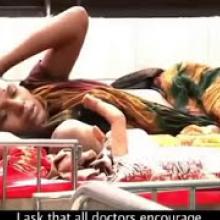Journal article
Feb 07 2023

The political economy of infant and young child feeding: confronting corporate power, overcoming structural barriers, and accelerating progress (Baker P, Smith JP, et al, The Lancet. 2023)
Despite increasing evidence about the value and importance of breastfeeding, less than half of the world's infants and young children (aged 0–36 months) are breastfed as recommended. This Series paper examines the social, political, and economic reasons for this problem.
Journal article
Sep 01 2022

Implementation and Effectiveness of Policies Adopted to Enable Breastfeeding in the Philippines Are Limited by Structural and Individual Barriers
The Philippines has adopted policies to protect, promote, and support breastfeeding on par with global standards, yet the impact of these policies is not well understood.
Journal article
Feb 11 2020

Suboptimal infant and young child feeding practices in rural Boucle du Mouhoun, Burkina Faso: Findings from a cross-sectional population-based survey (Sarrasat S., 2019. PLOS One)
Mothers in the rural Boucle de Mouhoun Region of Burkina Faso had low levels of knowledge of IYCF and practices, according to this study: 60% of children had the minimum meal frequency, while only 18% benefited from the minimum dietary diversity and 13% received minimum acceptable diet.
Journal article
Nov 15 2019

The financing need for expanded maternity protection in Indonesia. (Siregar AYM., 2019. International Breastfeeding Journal)
To increase breastfeeding rates, this study explores the potential cost to optimizing paid maternity protection programs, as well as challenges to its implementation in Indonesia.


